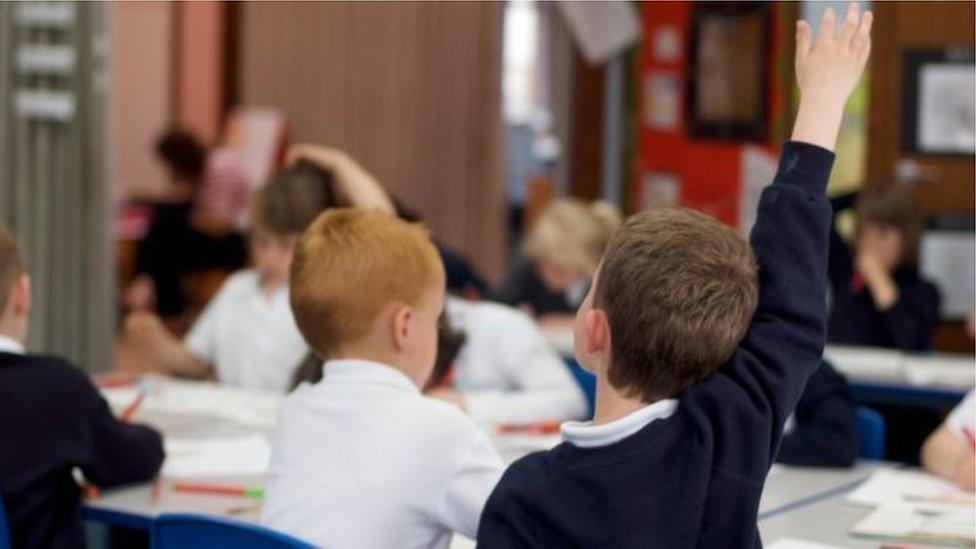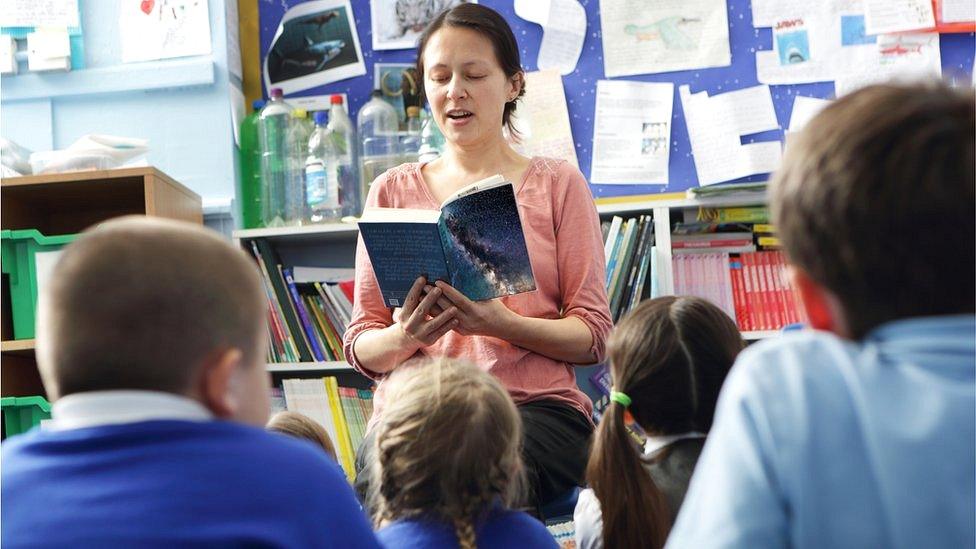School starting age: 'Nine in 10' support NI change
- Published
- comments

Northern Ireland has one of the youngest primary school starting ages in Europe
There has been overwhelming support for a move to allow some children to delay starting school for a year.
That is according to the results of a consultation on the plans by the Department of Education.
The change would allow children born between 1 April and 1 July to defer starting pre-school and school for a year if their parents wished.
Northern Ireland has one of the youngest primary school starting ages in Europe.
Most children in Northern Ireland start school in September of the school year after their fourth birthday.
However, children whose birthdays fall between 2 July and 31 August usually start in the September after their fifth birthday.
It means children can start primary school from ages ranging from four years and two months to more than five years old.
The department wants to change that to allow more flexibility in the school starting age for children born between 1 April and 1 July.
The current law would be amended so that deferred children do not reach compulsory school-starting age until 1 September after their fifth birthday.
The consultation on the proposed change attracted over 750 responses, two-thirds of which were from parents.
It also received responses from 78 principals and 89 teachers.

Most children in Northern Ireland start school in September of the school year after their fourth birthday
Overall, nine in every 10 respondents were in favour of giving parents the option to delay their child starting pre-school or school if they were born between 1 April and 1 July.
A majority of those who responded also said that any child born prematurely, as well as looked after children - also known as children in care - should have the option to defer starting school.
Some teaching unions and the Tiny Life charity for premature babies have previously backed the department's plans.
However, a small minority of those who responded to the consultation objected to the proposals.
Among the reasons they gave were that "there is little research to suggest that deferring school starting age has a significant positive impact on a child's education and development" and that "early diagnosis of any special educational needs for a child is beneficial".
In many other European countries, children do not start formal primary education until they are aged six or even seven.
According to research by the European Commission, children do not start primary until they are six in almost 30 countries - including Germany, Belgium, Spain and France.
In some, like Finland, children do not formally start primary school until they are seven - but most children go to some form of pre-school in those countries before those ages.
The Department of Education will now bring forward a bill to change the law on school starting age in Northern Ireland.
But it faces a race against time to be passed before the next Stormont election, which is due in May.
Related topics
- Published9 November 2021

- Published16 February 2021
